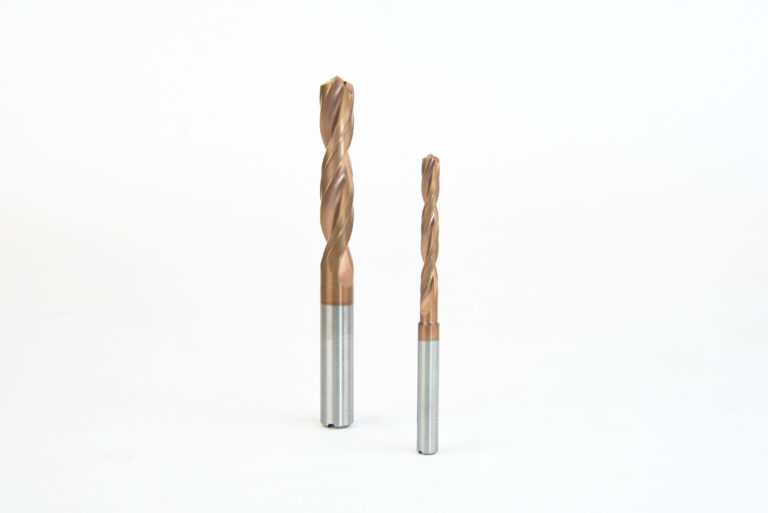Steel is one of the most popular and versatile construction materials. It is highly machinable and suitable for rolling, forging, bending, deep drawing, welding, and cutting. In addition, the material is easy to harden, offering high tensile strength and relatively good elongation at break. Conversely, increased wear due to high temperature build-up in the cutting zone is an issue with the material.
Here are some of the steel grades in wide use in industrial applications along with the special challenges presented by each:
- S235: This is a structural steel (material number 1.0037), belongs to the unalloyed steels, and is widely used in engineering applications, especially as supports for welded structures. The steel has good plasticity and ductility, and is known for its excellent cold bending properties. However, when machining S235, impurities in the material, poor chip breaking, low surface qualities, and the risk of built-up edges are all issues to consider.
- 42CrMo4+QT: This is a tempered steel belonging to the group of low-alloy steels (material number 1.7225). It is very strong, easy to harden, and is characterized by high fatigue and impact strength. It is used in the production of machine components, crankshafts, and axles. When machining the material, two of the main issues include its high tensile strength and tool wear.
- X155CrVMo12-1: This is a high-alloy tool steel (material number 1.2379). It is in wide use due to its high wear resistance and excellent dimensional stability and toughness, especially in relation to high-performance cutting tools. In order to achieve reliable machining results, it is important to consider factors like the significant fluctuation in quality from batch to batch and the high cutting forces needed to work the material.
- Toolox 44: This high-alloy steel belongs to the mold-making steels. It is primarily used in tool, mold, and die making due to its favorable properties. One factor to consider when machining Toolox 44 is its extreme hardness, which has the effect of reducing tool life.
- PM60: This is a high-speed powder metallurgy steel. Key characteristics include high wear resistance and outstanding hot hardness and toughness. This steel is used in the production of motor cars. It is difficult to achieve a good surface quality when machining the material.
- Hardox 500: This high-alloy, wear-resistant steel is particularly tough, easy to work, and resistant to abrasion. This make it suitable for machine components subject to heavy strain, such as grinding machines in recycling plants and shredders.
Steel is highly machinable. However, it is important to consider the material-specific properties of the different steel grades. For example, extremely sharp cutting edges are required to machine low-carbon steels due to their tendency to adhere to the tool. Depending on the type of steel, increased tool wear due to heat build-up is a major issue. ZCC-CT is your partner of choice when it comes to the efficient, reliable machining of steel. We offer high-quality machining tools for turning, milling, and drilling steels that meet your specific needs.










